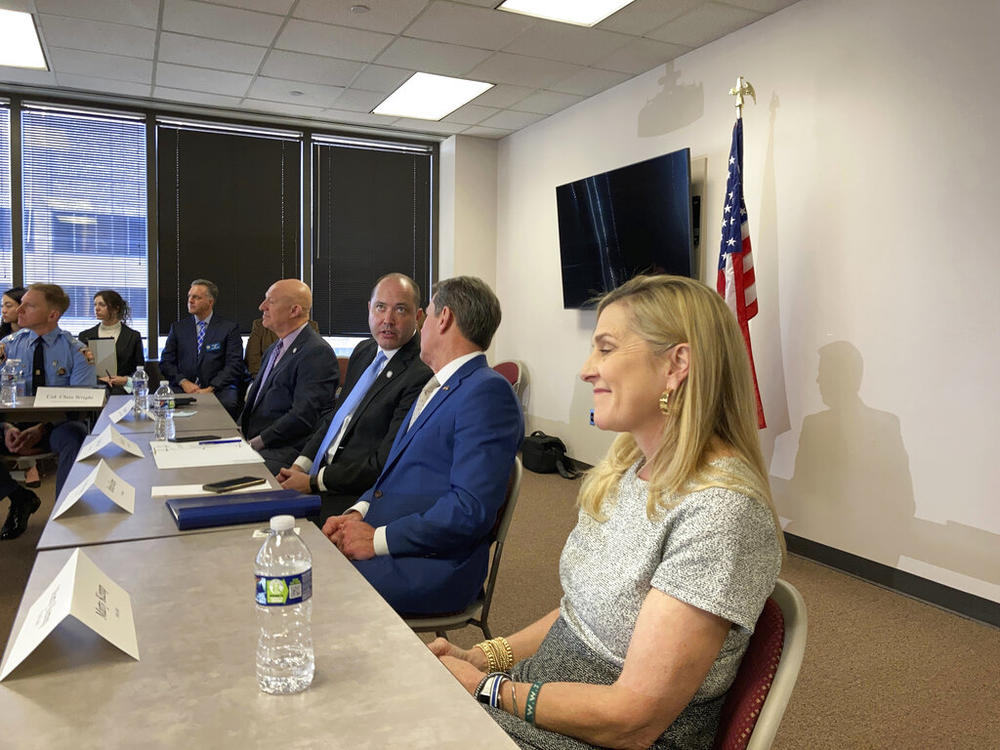
Caption
Georgia Attorney General Chris Carr speaks to Gov. Brian Kemp, second right, during an anti-gang task force meeting on Wednesday, Feb., 9, 2022, in Atlanta, as Marty Kemp, the governor's wife, looks on. Carr and Kemp are supporting moves to give Carr's office more power to prosecute gang crimes.
Credit: AP Photo/Jeff Amy

